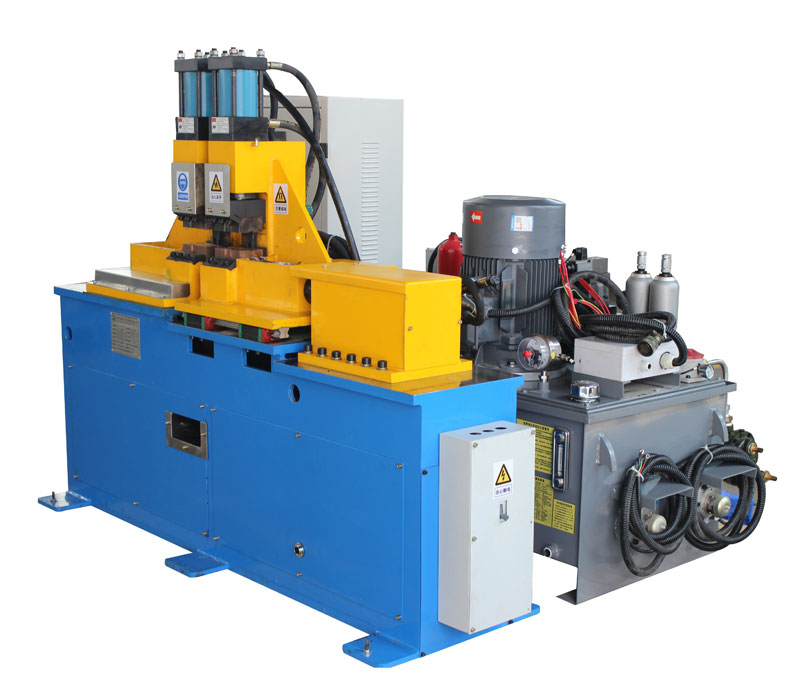Cable butt welding machines are essential tools for joining electrical cables efficiently and reliably. This article explores the significance of electrode materials in these machines and delves into the properties and considerations that make them crucial for achieving high-quality cable welds.
1. Copper Electrodes:
- Significance: Copper electrodes are widely used in cable butt welding machines due to their excellent electrical conductivity.
- Properties: Copper electrodes offer superior electrical performance, ensuring efficient energy transfer during the welding process.
- Considerations: Copper electrodes are suitable for a range of cable materials, making them versatile for various applications.
2. Aluminum Electrodes:
- Significance: Aluminum electrodes are preferred for welding aluminum cables and applications where weight reduction is a priority.
- Properties: Aluminum electrodes are lightweight and provide adequate electrical conductivity for aluminum cable welding.
- Considerations: When welding aluminum cables, using aluminum electrodes ensures compatibility and minimizes the risk of galvanic corrosion.
3. Copper-Chromium (Cu-Cr) Alloys:
- Significance: Cu-Cr alloys, such as C18200 and C18150, offer excellent resistance to wear and high-temperature properties.
- Properties: These alloys exhibit exceptional wear resistance, making them ideal for applications with high welding frequency and abrasive wear.
- Considerations: Cu-Cr alloys are often used in heavy-duty cable butt welding machines to prolong electrode life and maintain shape integrity.
4. Tungsten Electrodes:
- Significance: Tungsten electrodes are used when precise control over the welding process is necessary.
- Properties: Tungsten electrodes have a high melting point, making them suitable for applications requiring extremely high temperatures.
- Considerations: Tungsten electrodes are often used in specialized cable butt welding machines for materials like stainless steel or exotic alloys.
5. Electrode Coatings:
- Significance: Coated electrodes can enhance performance and extend electrode life.
- Properties: Various coatings, such as zirconium or chrome nitride, can be applied to electrodes to improve wear resistance and reduce adhesion of molten metal.
- Considerations: Coated electrodes are valuable for extending maintenance intervals and reducing downtime.
6. Material Compatibility:
- Significance: Electrode materials must be compatible with the cable material to prevent contamination and ensure a clean weld.
- Considerations: When selecting electrode materials, consider the type of cable being welded and choose materials that are chemically compatible.
7. Electrode Shape and Design:
- Significance: The shape and design of electrodes influence the welding process and weld quality.
- Considerations: Choose electrode shapes based on the specific cable welding application. Different shapes, such as flat, pointed, or concave, can be employed to achieve desired weld profiles.
Electrode materials are pivotal in cable butt welding machines, influencing the efficiency and quality of cable welds. Copper electrodes are widely used for their exceptional conductivity, while aluminum electrodes are favored for lightweight applications. Cu-Cr alloys offer wear resistance, tungsten electrodes provide precise control, and coatings enhance performance. Selecting the right electrode material and shape is essential for achieving reliable and high-quality cable welds, ensuring the integrity and safety of electrical connections in various industrial and construction applications.
Post time: Sep-02-2023



